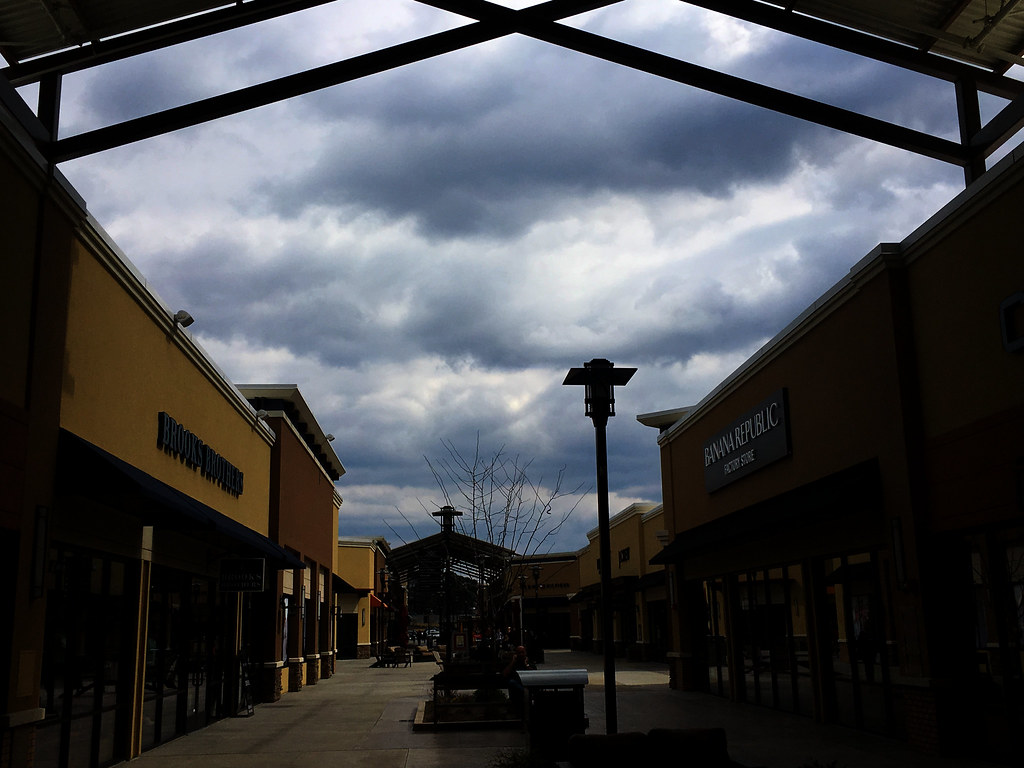Photography Now & Then #79
No rain today, but it was cloudy , windy, and cool. These clouds are trailing a storm system that is turning into the 4th northeaster in recent weeks on the east coast.

Now: Outlets of Little Rock – dark fair weather clouds trailing a cold front, March 20, 2018, first day of spring by astronomical reckoning (Apple iPhone 6s)
______________________________________
Four months from now, the air will be hot and heavy with humidity, the cicadas will be droning and the summer flowers will be in bloom.

Then: Black-eyed Susan blossoms (Rudbeckia hirta) in the yard, west-central Arkansas, July 27, 2008 (Pentax K10D)
Rudbeckia hirta, commonly called black-eyed Susan, is a North American flowering plant in the sunflower family, native to Eastern and Central North America and naturalized in the Western part of the continent as well as in China. It has now been found in all 10 Canadian Provinces and all 48 of the states in the contiguous United States.[2][3][4]
Rudbeckia hirta is one of a number of plants with the common name black-eyed Susan. Other common names for this plant include: brown-eyed Susan, brown betty, gloriosa daisy, golden Jerusalem, English bull’s eye, poor-land daisy, yellow daisy, and yellow ox-eye daisy.
The plant also is a traditional Native American medicinal herb in several tribal nations;[9] believed in those cultures to be a remedy, among other things, for colds, flu, infection, swelling and (topically, by poultice) for snake bite (although not all parts of the plant are edible)
Photography Now & Then Notes:
- Series Photos
- The Now photo is one that is almost always taken the day of the blog post. In some instances, posts may be backdated if internet access is not available on the day of the photo or other reasons prevent posting Photography Now and Then.
- The Then photo is usually a randomly selected older photograph from a batch of photos specifically “curated” for Photography Now and Then.
- Each photo in this series is an “original work” – a copyright term – of Michael Goad.
- Reference links were accessed on the date the blog post was published, unless otherwise stated.
- The title convention for Photography Now & Then blog posts evolved early on from one word related to each photo separated by “&” to usually being the first word in the caption description for each photo.

